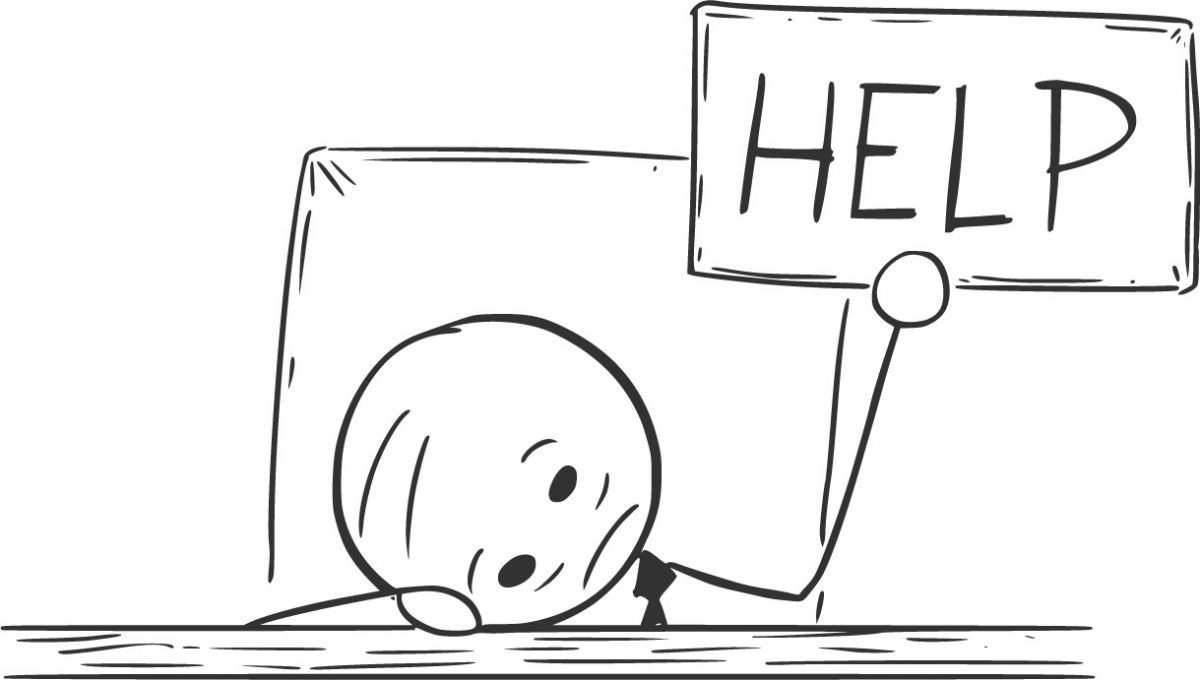Why tinnitus can make us depressed, and what we can do today, to help ourselves.
Content warning: suicide
Yesterday (10th October) was World Mental Health Day, and this year I want to focus on depression.
Depression is an illness. It can happen to anyone – even those who have riches and fame, including Jim Carrey, JK Rowling, Ben Affleck, Jon Hamm, and Dwayne “The Rock” Johnson.
In a 2017 Study researchers found that over a quarter of people interviewed, who lived with tinnitus, had experienced depression over the previous 12 months. The figure was just 9% for people without tinnitus.
So, if you’re feeling low because of your tinnitus, there’s a chance you might be experiencing depression.
How to tell if you might be depressed
Here’s a quick checklist of symptoms that people with depression typically experience:
• persistent sadness
• loss of interest in activities that you normally enjoy
• change in appetite (you might eat less, or more, than usual)
• lack of energy
• sleeping more, or less, than usual
• feeling anxious
• difficulty concentrating
• indecisiveness
• restlessness
• feeling worthless, guilt, or hopeless
• thoughts of self-harm or suicide
If, from these symptoms, you recognize that your tinnitus might be causing depression (or adding to depression you are already experiencing) the good news is that it can be treated.
According to the National Institute of Health up to 80% of those treated for depression show an improvement in their symptoms generally within four to six weeks of beginning medication, psychotherapy, attending support groups or a combination of these treatments.
“Medical attention is medical attention whether it’s for your elbow or your teeth or for your brain. And it’s important. We live in a world where to admit anything negative about yourself is seen as a weakness, when it’s actually a strength.”
Jon Hamm
Taking the first step
The first step to take in managing your depression is to speak to your GP or doctor. Don’t hold back. Tell them everything. If you feel embarrassed, don’t be – consider it an opportunity to educate the medical establishment on the significant effect tinnitus can have on our mental health. You’ll be doing the entire tinnitus community a favor.
Helping yourself
It tends to take a few weeks for any medication you are offered to take full effect. Plus, depending on how easy it is to access mental health care where you are, there may be a delay before you start talking therapies. This can leave us feeling like we have absolutely no control over our situation. But we’re wrong.
Here’s what YOU can do right now to support your recovery from depression:
- Talk to someone you trust about how you feel.
- Try to keep doing at least some of the activities that you usually enjoy.
- Tempting as it is to ignore messages and phone calls, it’s helpful to stay connected with a few close friends and family.
- Get outside. Exposure to sunlight is thought to encourage the brain to release serotonin, a hormone associated with improving mood. You don’t have to go running, or hike for miles. It’s enough to sit on your front step with a cup of coffee or take a short walk.
- Eat regularly. Low blood sugar will only make your low mood seem worse.
- Stick to a regular sleep schedule as much as possible.
- Avoid, or restrict alcohol intake – after the initial buzz, alcohol becomes a mood depressant. Illicit drugs can have the same impact.
- If you feel suicidal, contact someone you trust for help, ring the emergency services, or take yourself to your nearest emergency room immediately.
“Your mental health is more important than the test, the interview, the lunch date, the meeting, the family dinner, and the grocery-run. Take care of yourself.”

